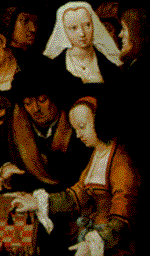The Game and the Players
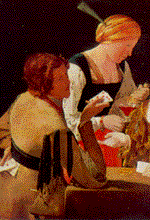
If the author stays true to the facts, his or her characters may be as flat as the pages of the book. If the author takes liberties with historical events, the characters may be more successful, but doubts about the narrative may surface even among readers who have spent years sleeping through history classes.
What a pleasure, then, to come across an author who contradicts this rule so splendidly as Dorothy Dunnett. Her world is exact to the last detail. The 15th and 16th centuries come alive in her books, with none of that 20th-century arrogance which so often turns history into costume drama. Her novels are truly a tour de force, a wild steeplechase ride through the political intrigues and complications of the early modern age.
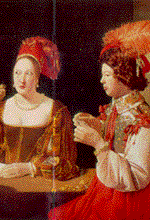
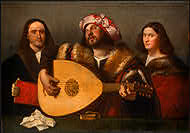 |
Hardly any other woman writer of popular literature has set off such a furor of interpretation among her readers. And Dunnett does it with a uniquely literary knack that is not merely fashionable, but highly effective. The absolute lack of an authorial narrative voice makes her characters actors, their age their stage.
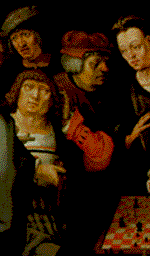
Just as in the art form of the 20th century -- film -- we see only the actors, the players playing their parts.
We do not take part in their inner monologues; we do not hear them doubt, procrastinate, or quarrel with themselves. The heroes' simple motto is "Don't explain, act!"
And Dunnett's heroes know just how the game is played. Only through their actions do we experience what goes on inside them. How Lymond reacts to music, which trade projects Nicholas pursues or lets fall -- these subtle little pointers say more than a thousand words, and woe to those who overlook the hints.
